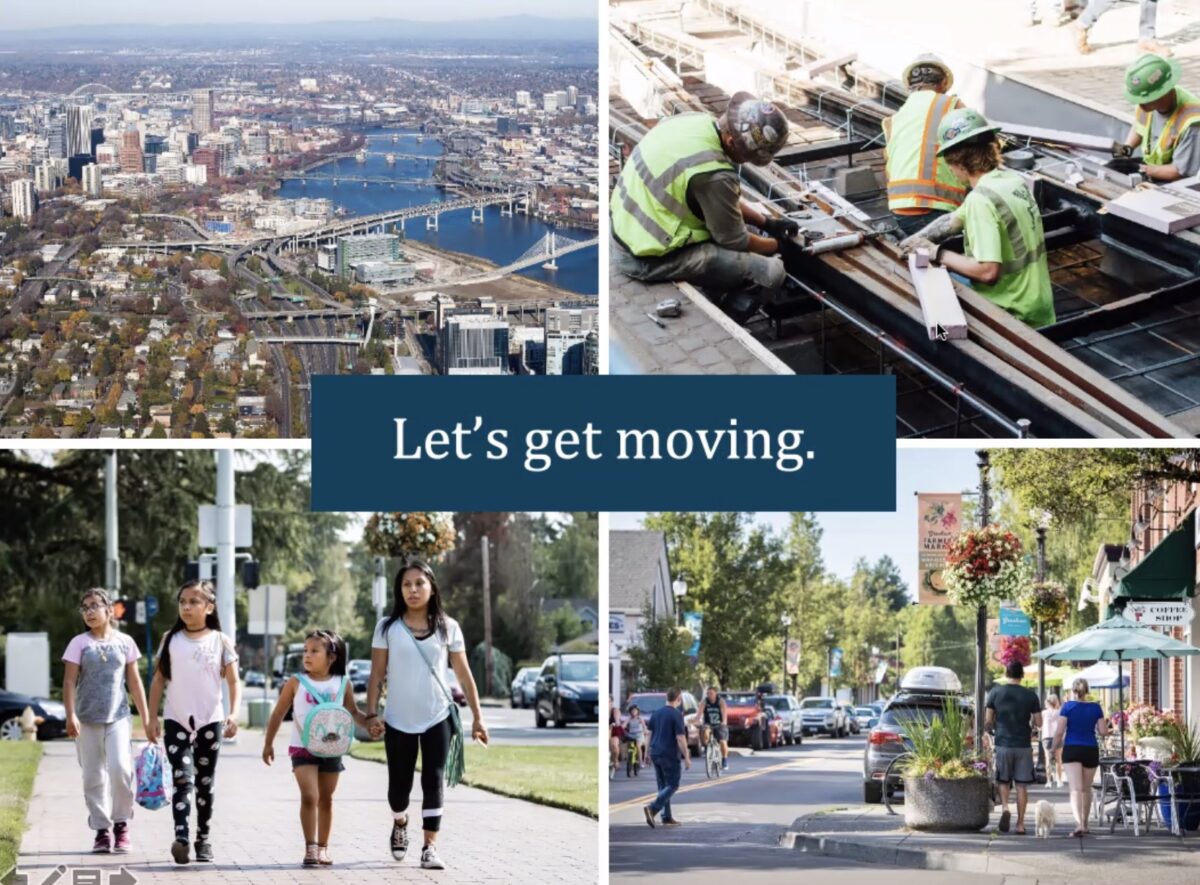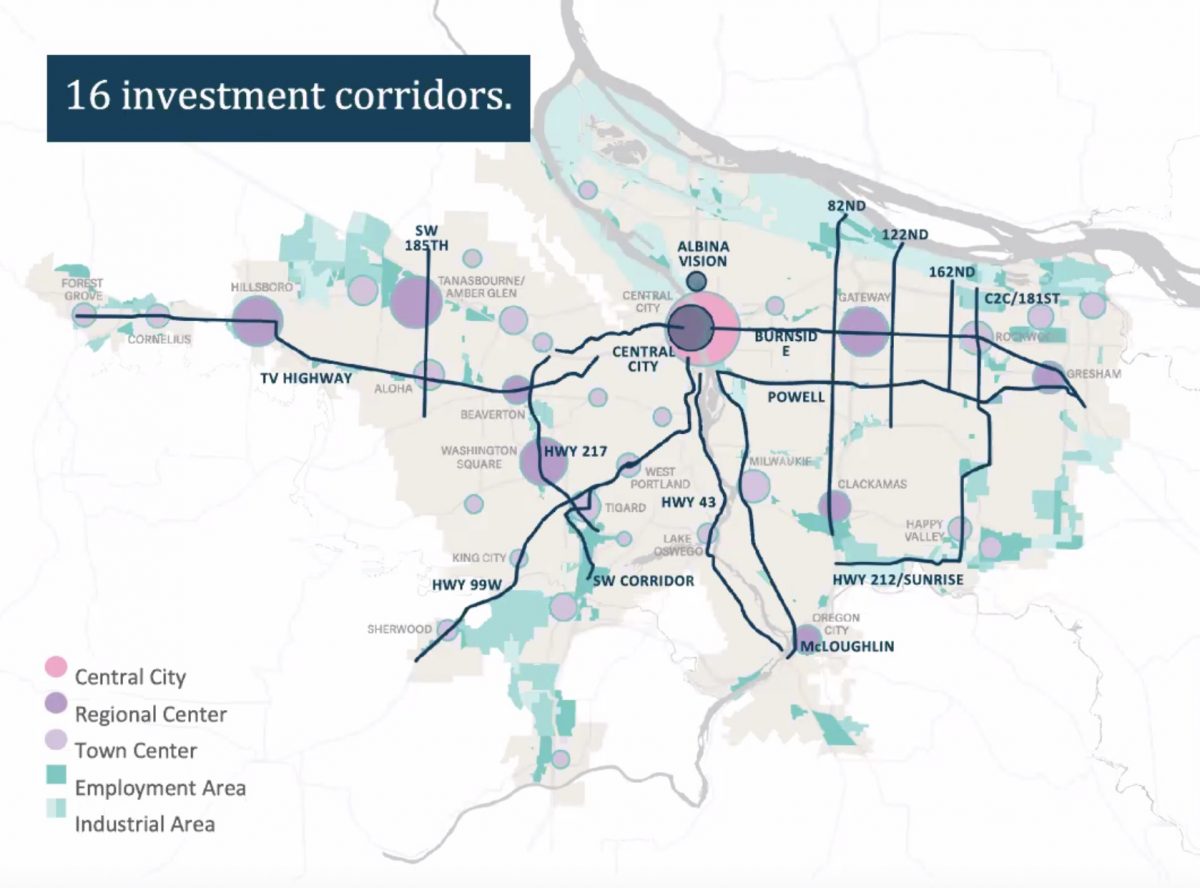After 16 months of meetings and planning, the Metro Council will decide at their meeting today whether or not to refer a $7 billion package of transportation investments to the ballot in November.
Get Moving 2020 is being framed as a job creation measure that will put people back to work to build a slew of infrastructure projects across the region. Metro says the list of projects and programs will cost $4 billion and would leverage nearly $3 billion more in federal funding. To pay that local amount, the initiative would be funded with a 0.75% payroll tax on employers with over 25 employees and would kick-in starting January 2022. The package of investments are supported by a broad coalition of elected leaders and transportation, environmental, racial and social equity groups.
In a letter of support written on July 7th (PDF), members of the Getting There Together Coalition wrote, “We recognize the opportunity we have right now to come together around a community-built plan, to begin to take meaningful action that builds a more equitable transportation system that works for all.”
Some activists think the measure invests too heavily in the SW Corridor MAX Light Rail Project and doesn’t go far enough to balance the modal playing field. Of the 16 corridors that would be funded, the MAX line would is pegged to receive nearly $1 billion of it. Beyond that project however, the measure would invest an unprecedented amount in key corridors like Tualatin-Valley Highway, 82nd Avenue, the lower Albina area, and others. If passed by voters it would fully fund PBOT’s Central City in Motion network of protected bike lanes.
Advertisement
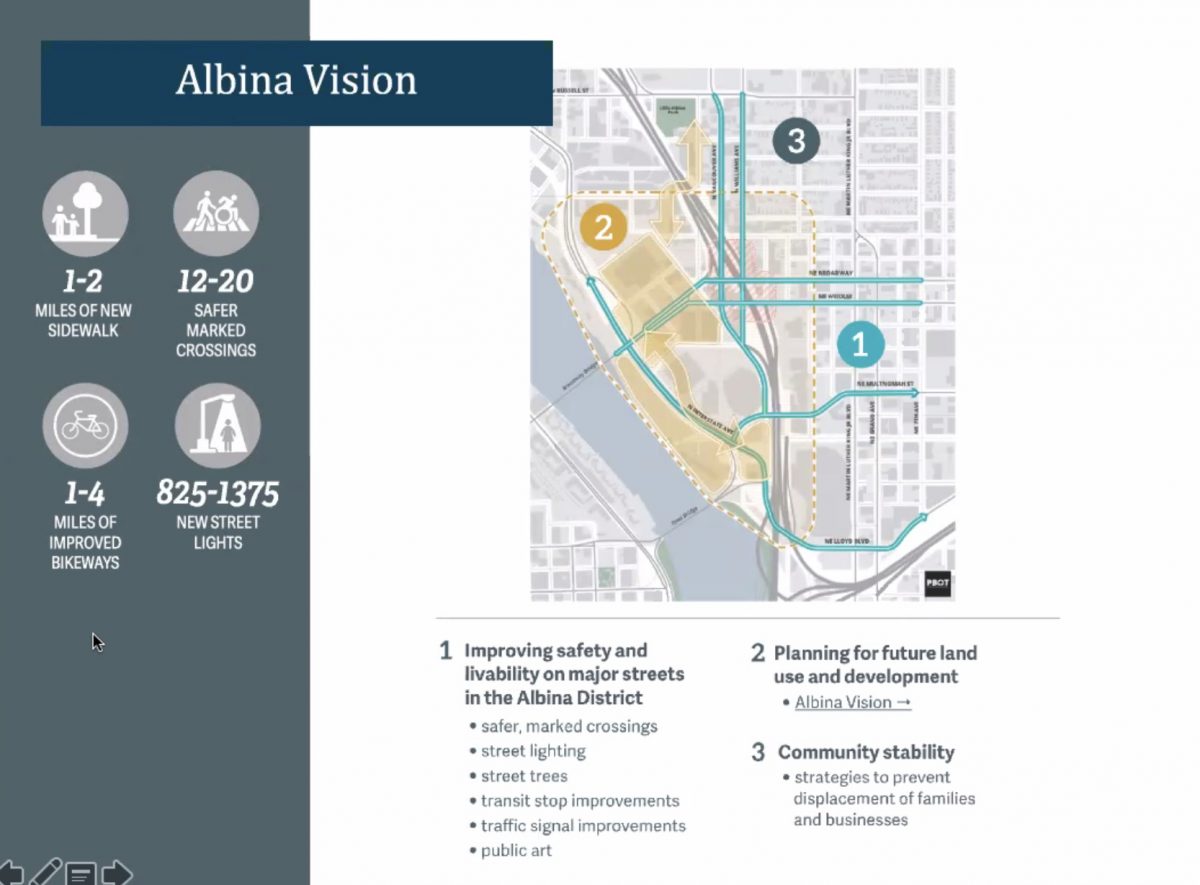
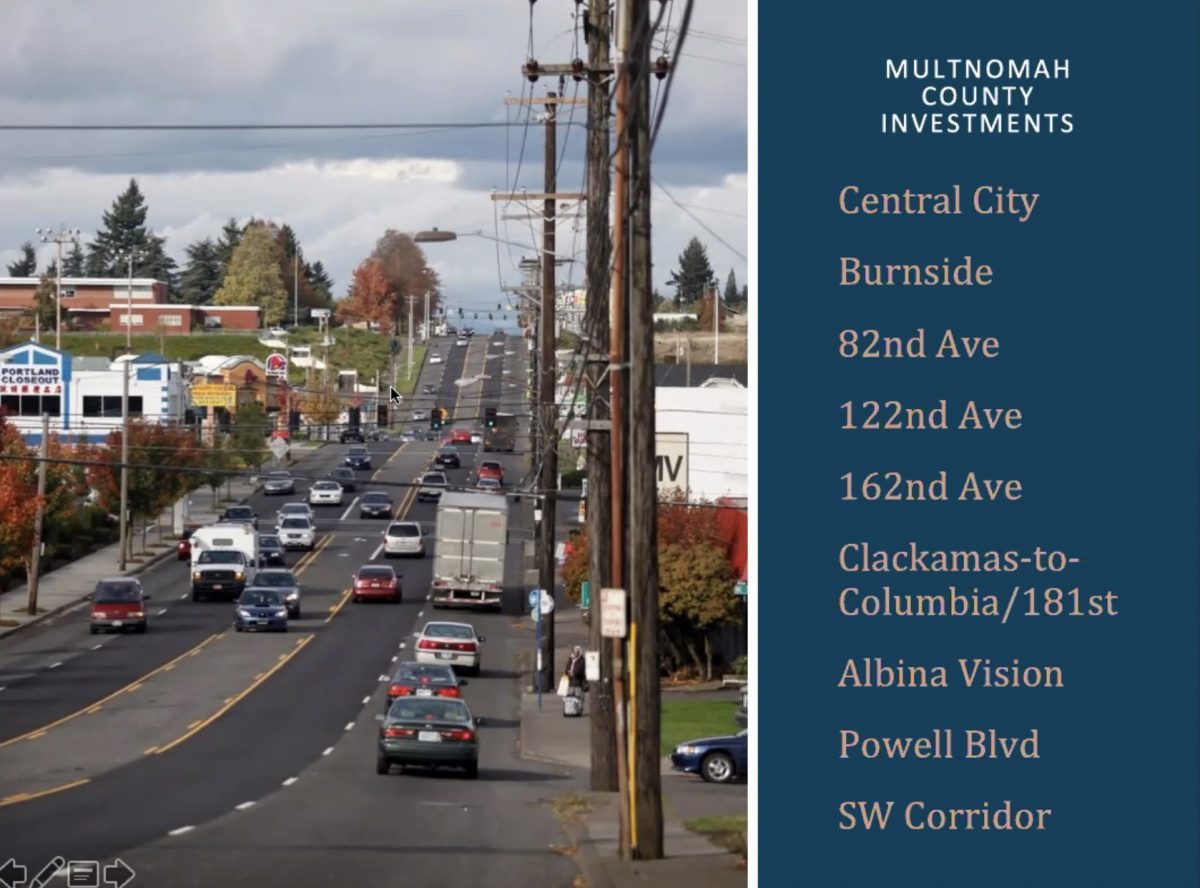

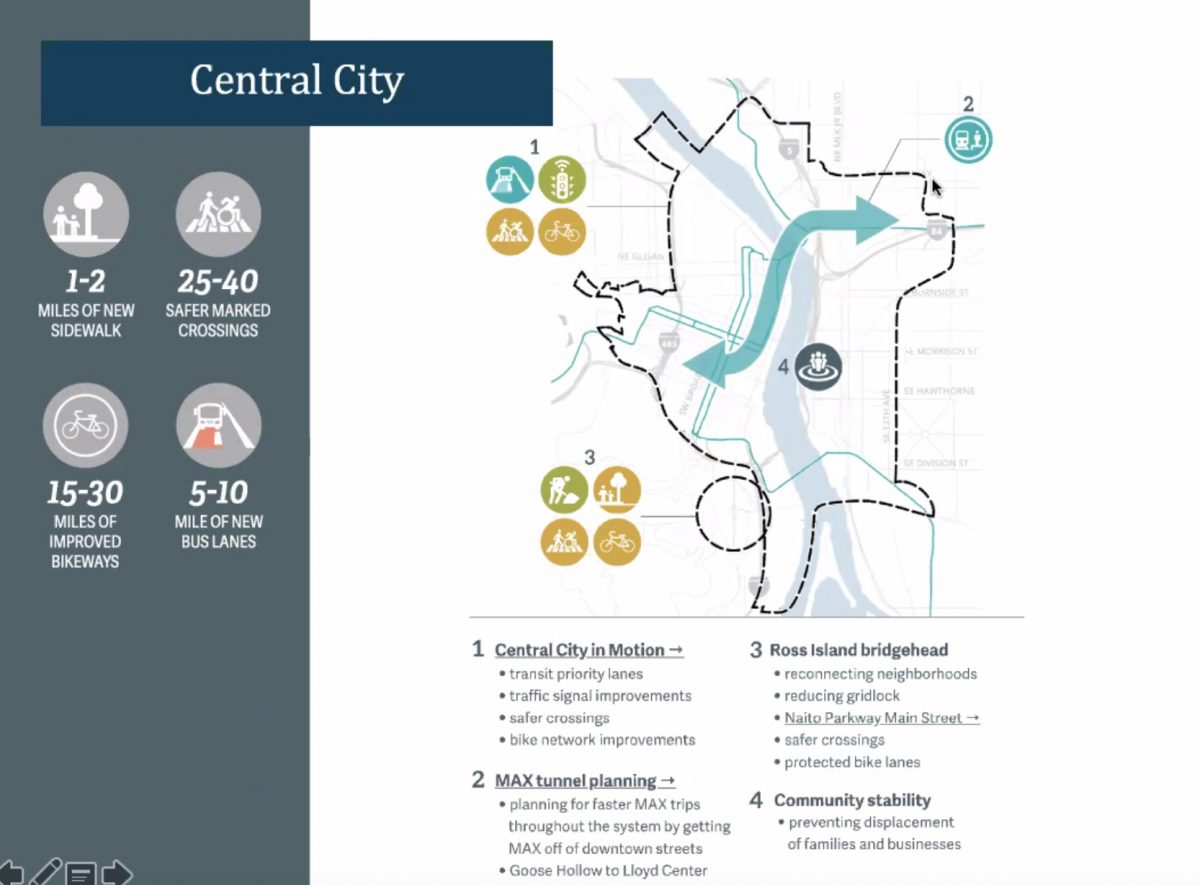
According to Metro project manager Tyler Frisbee who attended the Portland Bicycle Advisory Committee meeting on Tuesday, the projects were spread around the region with the specific intent to, “Make sure the benefits support everyone in the region, particularly those left out or harmed by previous transportation investments.”
Interestingly, Frisbee said the investments would create “safer” streets, not “safe” streets. She made the distinction in direct response to the recent protests around racist policies and police brutality. “I will talk about safer streets, not safe streets,” Frisbee said, “Because no street and no public space is safe when people are not protected by their government or systems of power.”
Over two-thirds of the proposed investments will be spent on transit and safety-focused projects and programs and 60% of the projects would be built in “equity focus areas”.
Hanging over the measure is organized opposition from business groups and companies including Nike and Intel. According to The Oregonian, business interests say the measure would hurt the economy and fail at the ballot. They plan to invest $3 million into an opposition campaign to fight it.
So far Metro Council President Lynn Peterson has pushed back against these threats and is expected to formally adopt the measure and send it to the ballot.
Stay tuned.
— Jonathan Maus: (503) 706-8804, @jonathan_maus on Twitter and jonathan@bikeportland.org
— Get our headlines delivered to your inbox.
— Support this independent community media outlet with a one-time contribution or monthly subscription.
